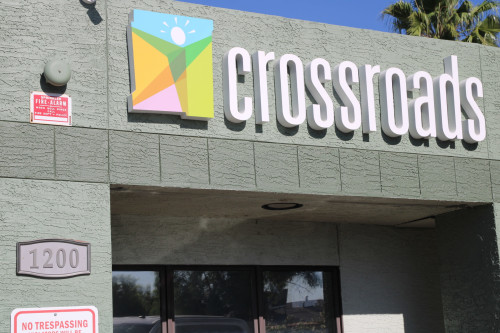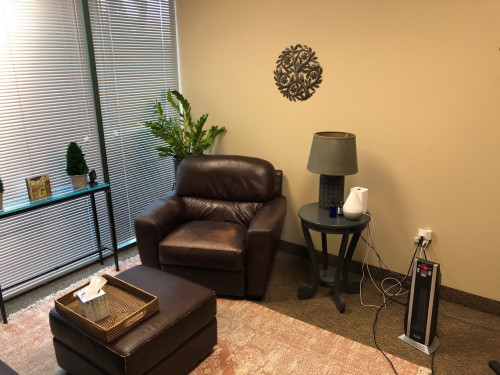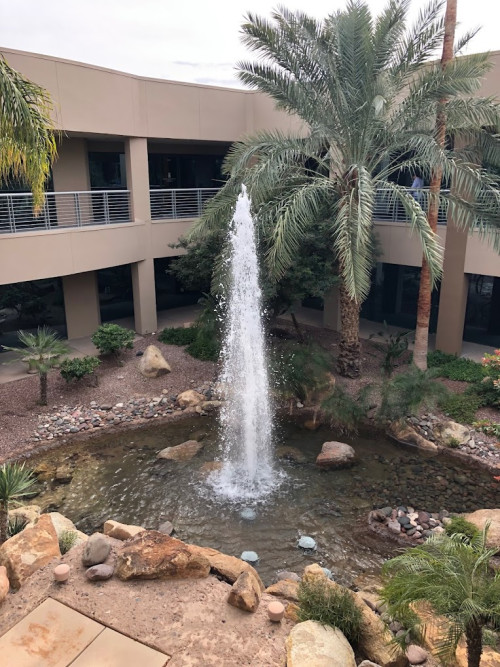






Crossroads Scottsdale Outpatient Campus
Treatment Focus
This center primarily treats substance use disorders, helping you stabilize, create relapse-prevention plans, and connect to compassionate support.
Primary Level of Care
Outpatient treatment offers flexible therapeutic and medical care without the need to stay overnight in a hospital or inpatient facility. Some centers offer intensive outpatient program (IOP), which falls between inpatient care and traditional outpatient service.
Claimed
Recovery.com has connected directly with this treatment provider to validate the information in their profile.
Treatment Focus
This center primarily treats substance use disorders, helping you stabilize, create relapse-prevention plans, and connect to compassionate support.
Primary Level of Care
Outpatient treatment offers flexible therapeutic and medical care without the need to stay overnight in a hospital or inpatient facility. Some centers offer intensive outpatient program (IOP), which falls between inpatient care and traditional outpatient service.
Private Pay
You pay directly for treatment out of pocket. This approach can offer enhanced privacy and flexibility, without involving insurance. Exact costs vary based on program and length of stay. Contact the center for specific details.
Crossroads Scottsdale Outpatient Campus
Crossroads Scottsdale Outpatient Campus
About Crossroads Scottsdale Outpatient Campus
Crossroads is a state licensed treatment provider with several locations near the Phoenix, Arizona area offering detox, residential, and outpatient substance abuse treatment for men, women, and veterans varying by location.
Crossroads Scottsdale Campus offers outpatient treatment services to men and women who are struggling with substance abuse disorders. Some of the programs they offer include DUI or Drug Court classes, a traditional intensive outpatient program (IOP) both on-site and virtually, and technology assisted care classes. Technology assisted care is a program that incorporates therapeutic, evidence-based treatment methods that provides virtual prevention and outreach services including computerized check-in’s and monitoring, web-based intervention, and telehealth services. All programs include case management services, group therapy sessions, transition planning, and 12-Step support. They also offer community building events like talent shows or sports days, family support group, employment services and resume building, and health and wellness with activities such as corn hole, volleyball, fishing, and use of an indoor gym.
Crossroads Scottsdale’s co-ed outpatient program offers a morning wellness group and an evening group, focusing on relapse prevention, skill development, and building support systems. Patients also focus on stress reduction techniques and participate in low-intensity exercise. Clients participate in 1-3 group sessions per week, and individual therapy sessions on a weekly, bi-weekly, or monthly basis. Personalized treatment plans also include aftercare services and continuing care coordination with the Crossroads Aftercare Program. Crossroads accepts many insurance plans, and strides to provide high quality and affordable care for adults seeking treatment for substance abuse.
Center Overview
Treatment Focus
This center primarily treats substance use disorders, helping you stabilize, create relapse-prevention plans, and connect to compassionate support.
Pricing and Program Length
Estimated Center Costs
Center pricing can vary based on program and length of stay. Contact the center for more information. Recovery.com strives for price transparency so you can make an informed decision.
Levels of Care






Your Care Options
Specializations
Outpatient
During outpatient rehab, patients attend a structured treatment program while continuing to live at home.
Who We Treat
Men and Women
Men and women attend treatment for addiction in a co-ed setting, going to therapy groups together to share experiences, struggles, and successes.
Approaches
Evidence-Based
A combination of scientifically rooted therapies and treatments make up evidence-based care, defined by their measured and proven results.
Individual Treatment
Individual care meets the needs of each patient, using personalized treatment to provide them the most relevant care and greatest chance of success.
Twelve Step
Incorporating spirituality, community, and responsibility, 12-Step philosophies prioritize the guidance of a Higher Power and a continuation of 12-Step practices.
Therapies
1-on-1 Counseling
Patient and therapist meet 1-on-1 to work through difficult emotions and behavioral challenges in a personal, private setting.
Online Therapy
Patients can connect with a therapist via videochat, messaging, email, or phone. Remote therapy makes treatment more accessible.
Life Skills
Teaching life skills like cooking, cleaning, clear communication, and even basic math provides a strong foundation for continued recovery.
Psychoeducation
This method combines treatment with education, teaching patients about different paths toward recovery. This empowers them to make more effective decisions.
Relapse Prevention Counseling
Relapse prevention counselors teach patients to recognize the signs of relapse and reduce their risk.
Twelve Step Facilitation
12-Step groups offer a framework for addiction recovery. Members commit to a higher power, recognize their issues, and support each other in the healing process.
Substances We Treat
Alcohol
Using alcohol as a coping mechanism, or drinking excessively throughout the week, signals an alcohol use disorder.
Drug Addiction
Drug addiction is the excessive and repetitive use of substances, despite harmful consequences to a person's life, health, and relationships.





